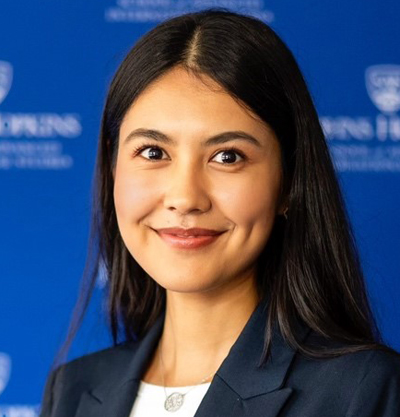Uzbekistan Will Become an Energy Supplier for Germany
On September 29
th, the Central Asia-Federal Republic of Germany (C5+RFN) format took place in Berlin. The summit put forward a Strategic Regional Partnership that will enable a new agenda of practical cooperation in the energy sector between Germany and the Central Asian economies.
The energy cooperation between Uzbekistan and Germany can serve as a catalyst for broader partnerships, prompting Uzbekistan to align its foreign policy priorities with European interests. This alignment will manifest in increased dialogue, joint initiatives, and shared policy objectives, influencing Uzbekistan's foreign policy trajectory towards Europe in a more collaborative and interconnected manner.
Analysis
On September 29th, in Berlin, the President of the Republic of Uzbekistan Shavkat Mirziyoyev took part in the first Summit of the Heads of State of Central Asia and Germany, chaired by the Federal Chancellor of the Federal Republic of Germany Olaf Scholz. Some of the topics of discussion at the summit included the expansion of trade and economic cooperation, the development of green energy and the adaptation to climate change, the protection of natural resources and the environment, and the commitment to a stable and sustainable regional development. The launch of a dialogue platform in the "Germany-Central Asia" format
was discussed earlier during the visit of Shavkat Mirziyoyev to Germany in May 2023. During the visit, the two states signed
agreements worth over 9 billion euros, covering cooperation in green energy, mining, and modernization of the transportation infrastructure. The bilateral meeting and the outcomes of the summit highlight the two countries' mutual interest in expanding their cooperation in the energy sector.
Germany Pursues Alternative Energy Sources
The Russian Federation used to be the largest gas exporter to Germany, followed by the Netherlands and Norway. In 2021, before Russia's full-scale invasion of Ukraine, about 55% of Germany's gas imports and 34% of crude oil imports came from Russia. Uzbekistan's abundant natural gas reserves position it as a noteworthy candidate for diversifying Germany's energy suppliers as it seeks alternatives to Russian gas. According to a
report by the International Energy Agency, Uzbekistan is one of the world's largest natural gas producers, producing around 60 billion cubic meters annually. In terms of natural gas, Uzbekistan ranks 11th in the world for mining and 14th for reserves. Natural gas dominates Uzbekistan's energy supply. In recent years, it has provided around 85% of both total energy supply and electricity supply and is the main energy source in all sectors.
Uzbekistan Is Making Strides Towards Green Energy
The government of Uzbekistan is undertaking reforms in the energy sector to diversify its energy resources. One of the first steps has been to create an investor-friendly environment that allows international private companies to invest in solar power plants for electricity generation, transmission, and distribution.
According to official figures, the sector saw $8 billion worth of direct investments over the past three years, and several solar power plants have been installed in the Navoi and Samarkand provinces.
Next, Uzbekistan has set a
goal to generate 30% of its electricity from renewable energy sources by 2030. This modernization is leading German firms to take a keen interest in Uzbekistan's energy sector. In recent years
the volume of German investments amounted to $4 billion and the number of joint ventures has doubled. Leaders of the German economy such as CLAAS, Knauf, Gunter Papenburg, Linde Group, and Falk-Porsche-Technik are successfully operating in Uzbekistan. During the joint business forum in May 2023, major German banks such as Deutsche Bank, Commerzbank, KfW, and Landesbank
agreed to finance $9 billion worth of large-scale projects in green energy, metallurgy, water supply, the automotive and electrical industries among other areas.
Regional Development
Germany and Uzbekistan are seeking to resolve the geographical distance through the development of an alternative energy supply corridor, which bypasses Russia. This long-term plan emphasizes a Middle Corridor that connects Central Asia and Europe through the Caspian Sea and South Caucasus (Georgia and Azerbaijan).
The EBRD's final
report on sustainable transport links between Europe and Central Asia recognizes the Middle Corridor (Central Trans-Caspian Network, Trans-Caspian Multimodal Route) as the most sustainable link. Uzbekistan'
Transport Strategy 2035 defines the Middle Corridor as one of the key development priorities of the country. Germany pledged that it would continue to support existing EU projects such as the Global Gateway and the Team Europe initiatives, which are aimed at developing the potential of the Middle Corridor.
The energy and economy ministers of Uzbekistan, Kazakhstan, and Azerbaijan also
agreed to draft a feasibility study of green energy exports to the European Union, with a focus on renewables, green hydrogen, and green ammonia. The prospects of exporting green energy to Europe from Uzbekistan and Kazakhstan through the territory of Azerbaijan were discussed at the tripartite meeting held on November 14 in Baku.
Conclusion
The Uzbek and German authorities aim to outline the framework for bilateral energy cooperation. The regular dialogue following the establishment of the Strategic Regional Partnership is the first step towards launching a series of projects in the energy sector between Germany and Uzbekistan.

Shakhlo Kamaladinova is a Master of Arts in Global Risk candidate at JHU-SAIS. Her main
research interests are political risk and development finance in Central Asia. She was a leading
research fellow at the Information and Analytical Center for International Relations under the
Ministry of Foreign Affairs of the Republic of Uzbekistan. Shakhlo holds a BA in World Politics
from the University of World Economy and Diplomacy in Tashkent.
